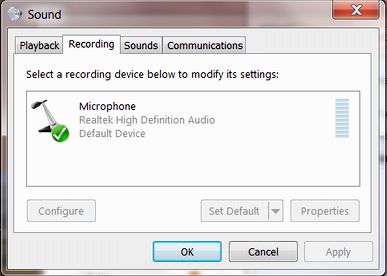Blue Snowball Microphone Driver Download
Smadav 11.0.4 pro crack & keygen download -. The word 'keygen' means a small program that can generate a cd key, activation number, license code, serial number, or registration number for a piece of software. A keygen is made available through crack groups free to download. KeyGen is a shortened word for Key Generator.
Go to Preferences->Audio and select the Blue mic as the input device. (it will only show up when The Snowball is plugged in). The following: If the device does not allow you to record, then your microphone is not being detected. Which is a device driver that essentially wraps existing WDM devices, like USB microphones,. Download the latest drivers for your Blue Snowball to keep your Computer up-to-date.

Hello, I have a Blue Snowball USB microphone that worked fine in Windows 7 (entirely Plug-n-play, no drivers needed), that no longer functions in Windows 10. I'm at work right now, but I will update the post with specifics once I'm home. The following is what I know about the problem:
Upon plugging in the microphone, the red light comes on the body of the mic as it does when it is receiving power and ready to record. I hear the notification of a device being plugged in, and then nothing else happens. When I check device manager, 'Blue Snowball Microphone' shows up in unknown devices, but windows doesn't know what driver to apply to it I suppose.
I went to the event viewer to see what was happening when I plugged it in, and it apparently invokes pnpui (I believe, this is based off my memory, I will update if I'm wrong) and then does nothing else.
I was curious and plugged in an old usb webcam in order to get some sort of mic working, but the webcam's microphone didn't work, only the camera part. So I could see myself, but the audio part never left the unidentifiable hell in device manager.
I have tried updating the system and all the drivers that I'm aware of, but to no avail. Any thoughts or suggestions on how to move forward? Let me know if you need any more information.

Getting a great recording into your computer requires a great microphone. Unfortunately, the amount of effort it takes to adapt a professional microphone for use with your computer can be a daunting task, often involving outboard sound cards, bulky pro-audio cables, and cumbersome microphone mounts.
To bridge the gap between professional microphones and the cheap mics that come with some computers or Webcams, Blue Microphones offers a plug-and-play USB microphone called the Snowball. Best known for its boutique line of high-end studio mics, Blue Microphones first released the Snowball in 2005, as its first consumer-level microphone, priced at $129. Since then, the Snowball has become a ubiquitous staple of podcasters and home recording enthusiasts, recognized as much for its unique retro design as its dependable and clean audio quality. As of August 2009, the Snowball can be found in multiple colors (black, silver, and white) and a new, lowered price of $99.
Design
There's no mistaking the Snowball for any other microphone. For starters, it's literally shaped like a ball (making the included stand a requirement for use), measuring 4 inches in diameter. The bottom of the mic includes a threaded metal hole for attaching to the included tripod base, which has an adjustable height of 5 to 6.5 inches.
The front of the Snowball is beautiful, provided you don't mind looking at Blue's retro-inspired scripted logo all the time. Beneath Blue's chromed plastic logo is a wire mesh grille and an integrated foam wind screen that protects the Snowball's two 0.5-inch mic capsules. Closer to the top of the mic you'll find an LED that indicates when the Snowball is connected to your computer.
On the back of the Snowball you'll find the mic's single audio connection, which technically isn't an audio connection at all, but rather, a metal-reinforced USB port. While we can appreciate Blue's emphasis on simplicity when it comes to its single output design, an additional output for line out or headphone monitoring would have been a nice.
Also included on the back of the Snowball is a convenient three-position switch for the microphone's three recording modes (cardioid, cardioid -10dB, and omni). We'll talk a bit more about these recording modes in the next section. From a design perspective, it is slightly frustrating that modes are labeled '1 2 3' instead of offering any suggestion as to what each mode does. Because of this, we found ourselves consulting the manual repeatedly--even after weeks with the microphone--simply to recall the purpose for each mode.
Features
Aside from just looking cool on your desk, the Snowball has a number of big and small features worth mentioning. Compared with the competition, the Snowball's greatest asset is the sonic flexibility offered by its two microphone capsules. In a product like the Mikey, Blue uses two similar capsules to achieve stereo recording. The Snowball, however, sticks to monophonic recording and dedicates the use of one capsule to an omnidirectional cardioid recording pattern (well-suited for a single voice or instrument), and lets the other capsule take in sound from all directions in an omni pattern. Users can switch between the two capsules to suit their recording needs, using the mode switch on the back of the microphone.